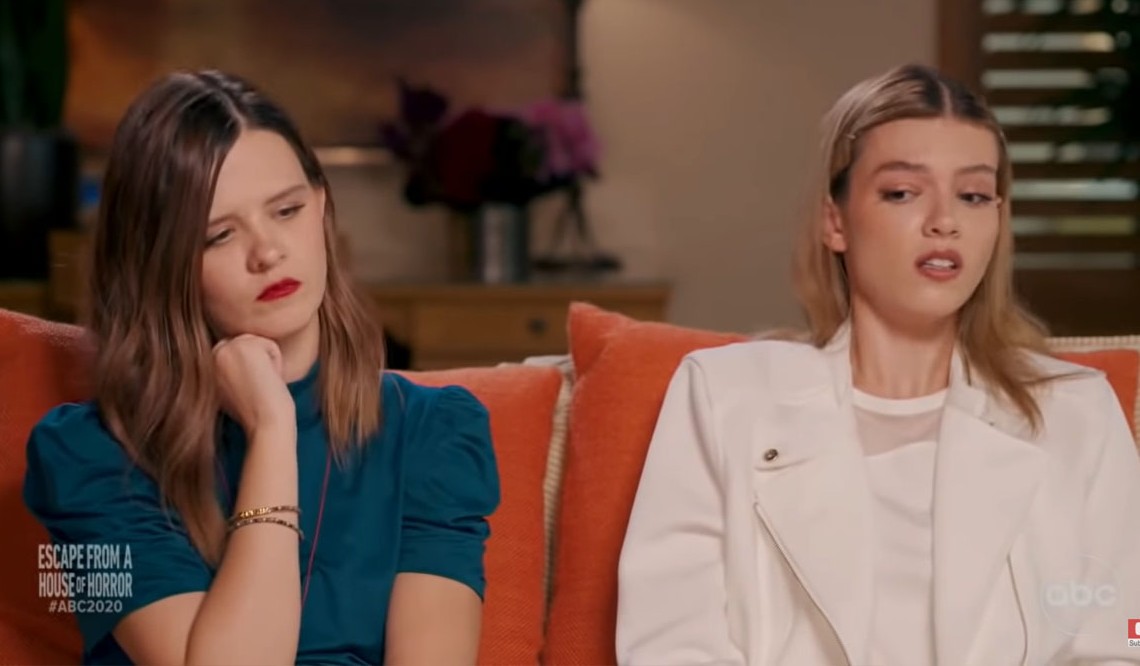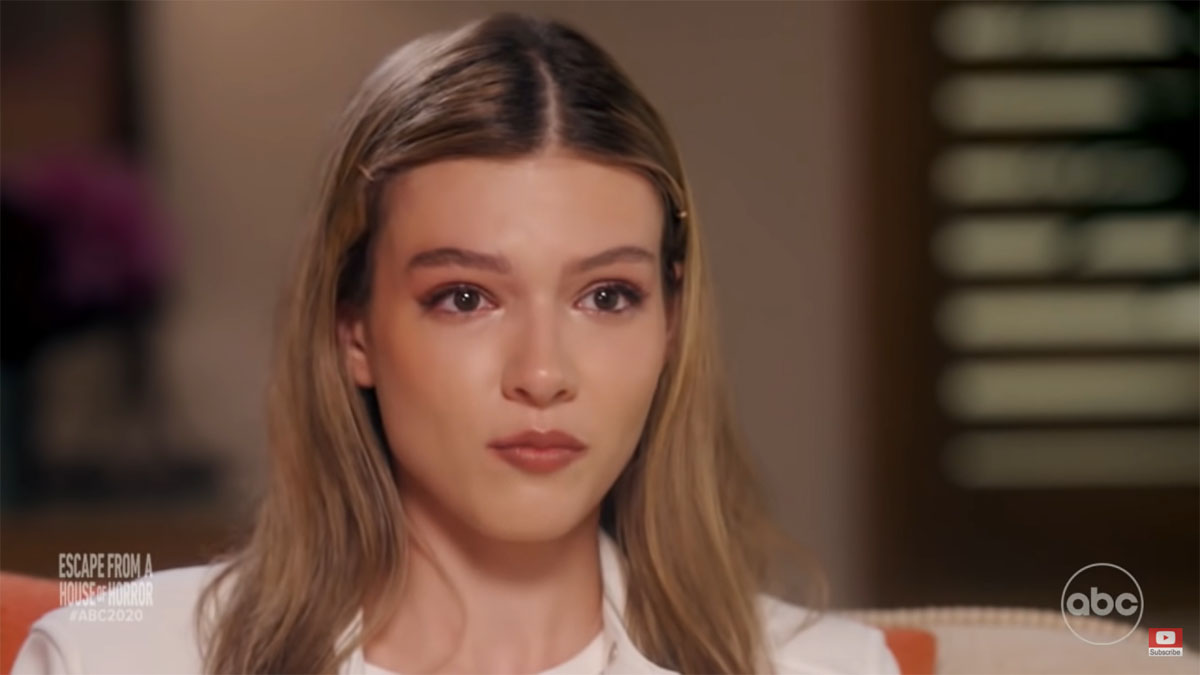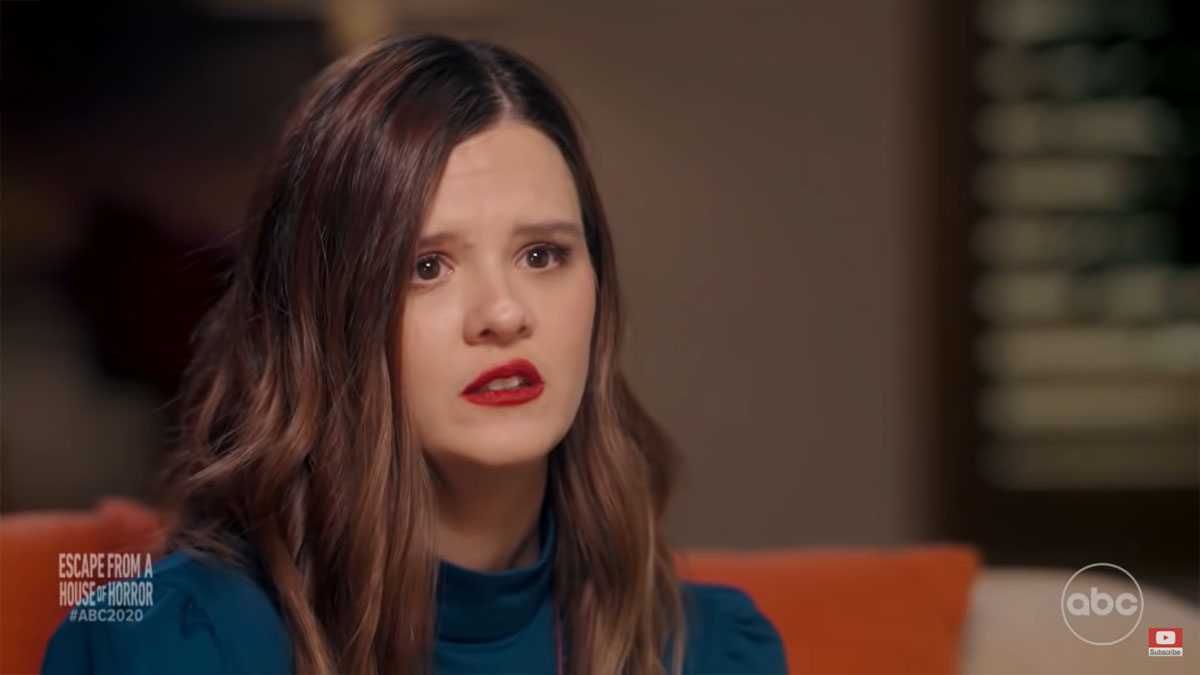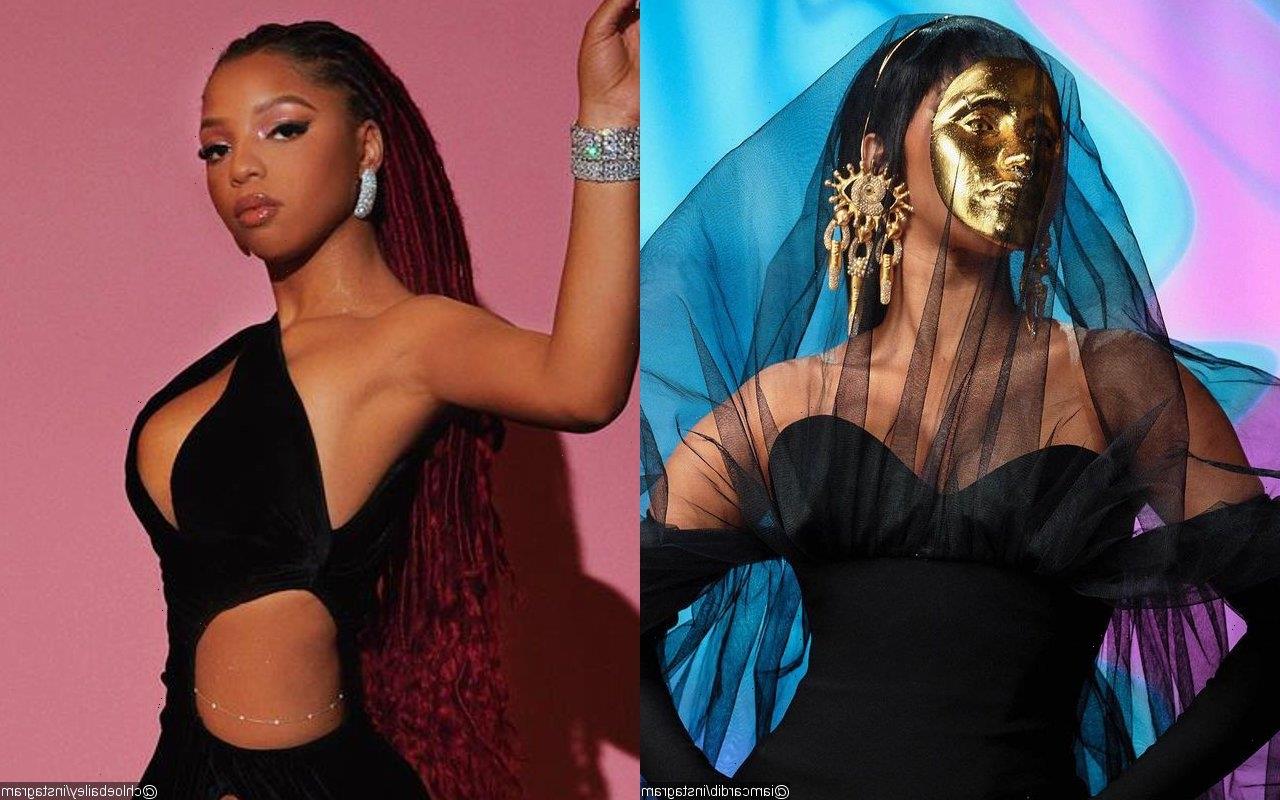Trigger warning on this story
I watched a half hour of the nearly one and a half hour 20/20 special on the 13 children recovered from extreme abuse and neglect in Perris, California in 2018. It felt exploitative, especially when the 33 year victim, Jennifer Turpin, said she needed a break because it was hard to recount the abuse she suffered as a child. Diane Sawyer conducted the interview and seemed to care little about the mental health of the women being interviewed. The other sister on camera was Jordan Turpin, who was just 17 when she escaped and told her story to a 911 operator and a police officer, saving her brothers and sisters from unimaginable conditions.
Sawyer’s interview style is cold and clinical, which is fine for regular interviews but not in this case. I’m reminded of the Ohio kidnapping victims being interviewed by Robin Roberts for 20/20. She was empathetic and understanding. By showing so many videos from inside the house and using recreated footage, 20/20 presented horrific abuse as entertainment. It was uncomfortable to watch and that’s why I turned it off. I’m disappointed in 20/20 but I guess this is how they always report true crime cases. It’s been years since I watched it.
Apparently at the end of the show they revealed how the other children are doing. The under-18 children were placed in foster care and the older children were left to fend for themselves. There was a small fortune in donations available for the care but it was meted out by a guardian who did little to help them. Here is some of People’s reporting on that.
Prior to their rescue, the Turpin children had spent most of their lives indoors — hidden from the outside world — where they were regularly beaten and starved. At times, the children were chained to their beds or put in cages for breaking house rules, which included keeping their hands off their parents’ food and remaining seated unless directed otherwise…
A new investigation from ABC News, featured on Friday’s episode of 20/20, reveals the rocky road that the Turpin siblings faced in the years that followed their rescue, validated by a few brave county officials aiming to expose a broken system.
“The public deserves to know what their government did and didn’t do, and how we failed these victims,” said Riverside County District Attorney Mike Hestrin. “[It’s] unimaginable to me that we could have the very worst case of child abuse that I’ve ever seen, maybe one of the worst in California history, and that we would then not be able to get it together to give them basic needs, basic necessities.”
After leaving the “House of Horrors,” the seven Turpin children who were minors were placed in foster homes. The six adult children were given a court-appointed public guardian to manage their health care, nutrition, safety, housing and education.
What reportedly followed were a series of new horrors. In one of the foster homes that several Turpins lived in, children were allegedly abused over an extended period of time. In another home, a foster parent told one of the Turpin girls that she understands why her parents chained her up.
The older siblings, who were sent out into high-violence neighborhoods with little-to-no life skills training, have allegedly been denied basic care from their public guardian. Speaking with ABC News, they reported that their guardian was often unwilling to offer simple support, such as teaching them how to use public transportation, cross the street properly, and access their health care benefits.
“When I would ask her for help, she would just tell me, you know, ‘Just go Google it,’” said Joshua Turpin, now 29.
Some of the older children, including Jordan, have also struggled to find stable housing and continued to starve.
David Scott, an investigative reporter for ABC News, noted that these poor living conditions persisted despite the Turpin siblings receiving more than $600,000 in donations from strangers following their release.
“Most of that money went into an official trust overseen by the court and hidden from public oversight,” Scott said. “County officials refused to tell us how much has been spent, or on what, but the Turpin we spoke to said those funds are hard to access.”
“It horrifies me to think things like this are happening to people who have been abused in a system that was specifically set up to help them,” said retired Superior Court of California Judge LaDoris H. Cordell. “Shamefully, the system failed this family.”
[From People]
Over a half million in donations was raised, but the young adults didn’t have adequate housing or food and I’m assuming they weren’t offered counseling either. The children had to deal with abusive foster homes. People goes on to report that the four youngest children are now in a safe foster home together and that kidnapping victim Jaycee Dugard has set up a fund to help. How are the people in charge of distributing money to the Turpin children not facing charges? I’m outraged for them, not only because they weren’t taken care of, but because the media is using them as entertainment like this. I hope that this brings awareness to their situation and gets them needed assistance. I’m never going to watch 20/20 again if I can help it.
Source: Read Full Article





